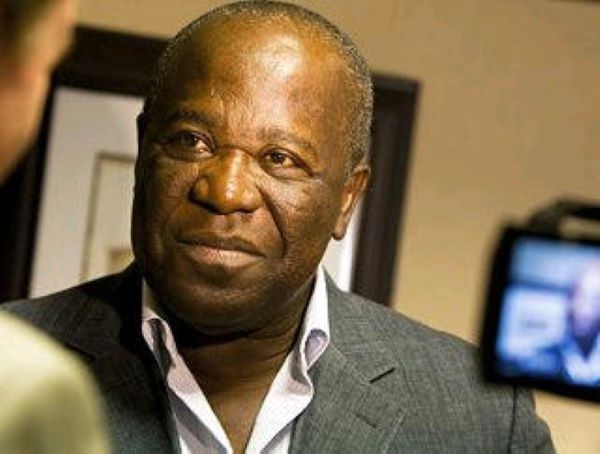Remove non-tariff barriers to push AfCFTA – Sir Sam Jonah
 Businessman Sir Sam Jonah
Businessman Sir Sam Jonah
The full potential of the African Continental Free Trade Area (AfCFTA) initiative can be realised if significant investment is made to develop infrastructure, technology and human capital on the continent.
Also, for countries on the continent to derive maximum benefits from the AfCFTA, non-tariff barriers such as cumbersome customs procedures, divergent product standards and other regulatory barriers that hinder cross-border trade must be eliminated.
The Executive Chairman of Jonah Capital Limited, Sir Samuel Esson Jonah, who has made the call, further stated that to achieve that, African governments needed to commit to implementing the necessary reforms and improve the business environment.
Korea-Africa Business Summit
Sir Sam Jonah stated at the Korea-Africa Business Summit in Seoul, South Korea.
Held on the theme: ‘An Era of Great Transformation: Leveraging Korea-Africa Economic Partnership,’ the summit attracted some former Presidents on the continent, business executives, ministers of state from Africa and Korea, and diplomats, among other dignitaries.
The AfCFTA, which came into effect in January 2021, is the largest free trade area globally, covering 55 African countries with a combined population of 1.3 billion people and a combined Gross Domestic Product (GDP) exceeding $3.4 trillion.
This landmark agreement is aimed at fostering economic integration, enhancing intra-African trade and promoting industrialisation on the continent.
One of the key objectives of the trade agreement is to boost intra-African trade by reducing tariffs and non-tariff barriers as well as eliminating or significantly reducing trade barriers such as customs duties and import quotas.
The agreement also seeks to create a single market for goods and services within Africa; thus, the harmonisation of trade rules and procedures would stimulate trade flows and lead to increased industrialisation and economic growth.
Prospects
Speaking on the topic: "Trade and Industrialisation: Achievements of AfCFTA and Prospects for the South Korea-Africa Economic Outlook," the Jonah Capital Limited Executive Chairman, explained that the AfCFTA represented a significant opportunity for African countries to “unlock their economic potential and drive sustainable development”.
Furthermore, he said, it could also provide opportunities for Korean companies to access the African market and increase their competitiveness.
“By taking advantage of the regional value chains and increased market access provided by the AfCFTA, Korean companies can expand their operations in Africa and increase their market share," Sir Sam Jonah explained.
To fully realise the prospects offered by the AfCFTA and the South Korea-Africa economic cooperation, it was imperative to address certain challenges, he stressed.
Challenges
These challenges, Sir Sam Jonah noted, included improving trade facilitation mechanisms, building institutional capacity, enhancing connectivity and fostering an enabling business environment.
“In an era marked by global interconnectedness and economic partnerships, the AfCFTA and the potential synergy between South Korea and Africa hold tremendous promise for trade and industrial development".
On Korea's technological prowess, the Jonah Capital Limited Executive Chairman said the Universal Pass (UNI-PASS) customs clearance system had been lauded for its efficiency and had helped to dramatically reduce the time required for customs clearance in countries other than Korea.
“Moreover, Korea saves $3 billion in logistics costs annually,” he noted.
Recognised as the world's fastest customs clearance system, the executive chairman observed that UNI-PASS was already contributing to Ghana's economic growth.
He also called for Korean-African trade partnerships to build robust, regional supply chain hubs in the battery chemicals industry across the continent.
That, he explained, would be the surest way for trade and investment between Korea and Africa to contribute to industrialisation and sustainable development.
“Today, Africans no longer desire trade that only sees Africa as a market but rather as a partnership that would add value to the domestic economy,” he added.
Private sector
On the role of the private sector in trade and investment on the continent, Sir Sam Jonah further said the success of the AfCFTA would also depend on the active participation of the private sector, both domestic and foreign.
“The private sector can play a vital role in driving economic growth, job creation and innovation. By investing in infrastructure, technology and human capital, the private sector can help to overcome some of the challenges that hinder trade and investment in Africa,” he observed.
Source: graphic.com.gh
Trending Business

Non-performing energy sector heads to be sacked -Energy Minister warns
13:14
Insurance brokers do not face trust issues with insurers – Shalbu Ali
12:11
IBAG reflects on a “mixed year” as industry records major wins
11:46
Domestic tourism spending hits GH₵6.59bn in 2023 - GSS
08:55
Bank of Ghana holds post-MPC engagement with bank CEOs after 127th meeting
03:53
Ghana's Cybele Energy makes history with offshore Guyana oil block deal
12:53
IBAG elects new executives at 12th general meeting
04:57
First Atlantic Bank PLC set for official listing on the Ghana Stock Exchange
12:46
SIC Managing Director James Agvenim-Boateng honoured by IBAG
05:34
IMF technical mission engages Ghana on implementing governance reforms
05:08



